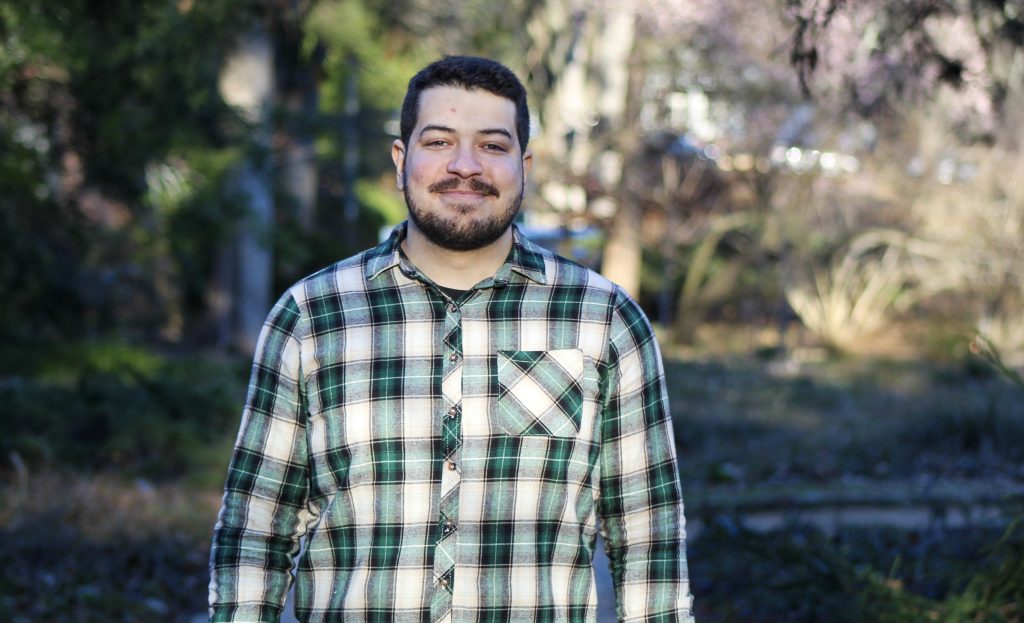Master’s student Lucas Adelino followed his passion for computational linguistics and natural language understanding to Carolina.

Lucas Adelino is “fascinated by how we use languages to communicate meaning, and how we can help computers to understand it.”
Adelino, who is originally from Recife, Brazil, took his first linguistics classes while earning his M.A. in adult education and an English Language Teaching certificate at Auburn University in Alabama.
“Those were the most inspiring courses I took in my time at Auburn,” said Adelino.
After graduating and beginning a job as a Portuguese language tutor at Carolina’s Academic Support Program for Student Athletes, he was inspired to start his master’s in linguistics at UNC.
Adelino was especially interested in exploring computational linguistics — the intersection of computer science and the analysis and synthesis of language and speech. Within this field, natural language understanding piqued his interest.
“Using language to communicate meaning might at first seem unique to natural human languages, but there’s actually a lot of overlap between how natural languages and formal languages (like mathematical notation) express meaning,” said Adelino, who is earning a graduate certificate in computational linguistics in addition to his master’s.
He added that the complex creativity used in human languages can make it “pretty challenging to pin down what a sentence means in a way that is suitable for computers to understand.”
Adelino’s graduate research seeks to help merge human and computer languages by studying paraphrases, statements that convey similar meanings using different wording.
Through his research, he asks: What are the linguistic operations that produce different paraphrase types, and can we design systems to automatically recognize them?
“It’s an interesting time for any research on natural language processing,” he said. “Platforms like ChatGPT have made a huge impact. They obviously aren’t the answer to everything, but they work well enough to pose all sorts of interesting questions and spark intense debate in the field.”
In addition to his graduate courses and thesis work, Adelino helps Carolina undergraduate students begin their exploration of both UNC and linguistics as a teaching assistant for the first-year course “Data Literacy Lab” — a workshop-style class that examines the ways in which professional data analysts think about and manage data — and graduate research consultant for the class “Textual Analysis with R.”
“It’s fantastic and likely the most rewarding part of my job here at UNC,” said Adelino of mentoring fellow Tar Heels.
When he’s not studying, researching or teaching, Adelino is most likely weightlifting or gaming. As he approaches the end of his final semester in his master’s, he’s looking forward to continuing his academic journey by earning his Ph.D. in computational linguistics.
“This dream would not be possible without the mentoring I’ve had from my professors and peers at Carolina,” he said. “Each and every one of them has been so passionate and so generous with sharing their knowledge. It has made a huge impact on me.”
By Jess Abel, College of Arts and Sciences
